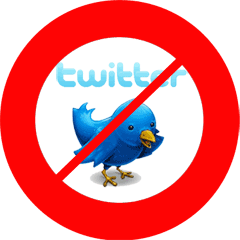‘Horrific’ Twitter Abuse Facing Clampdown

The boss of Twitter has promised to clampdown on the ‘horrific’ problem of online trolling, bullying and abuse
The chief executive of Twitter has admitted that online abuse on the microblogging service is at times “horrifying”.
The comments from chief executive Dick Costolo came in an interview with the Financial Times, in which he pledged to introduce measures to prevent Twitter abuse, as well as other forms of ‘trolling’.
Balancing act
These measures could include hiding replies from users who do not have any followers, biography or profile picture.
 But Costolo also said Twitter would continue to allow for freedom of expression, by enabling anonymous members to use the service for speaking out, as many have done in countries run by repressive regimes.
But Costolo also said Twitter would continue to allow for freedom of expression, by enabling anonymous members to use the service for speaking out, as many have done in countries run by repressive regimes.
“The reason we want to allow pseudonyms is there are lots of places in the world where it’s the only way you’d be able to speak freely,” Costolo said.
“The flipside of that is it also emboldens these trolls… how do you make sure you are both emboldening people to speak politically but making it okay to be on the platform and not endure all this hate speech? It’s very frustrating.”
One of the solutions that Twitter is reportedly considering is hiding reply page tweets from individuals that are not seen as authoritative. By ‘authoritative’, he means users that do not have any followers, biographical information or profile picture.
The news of a potential clampdown on abusive Tweets came after police reportedly began investigating a number of abusive and racist tweets following the penalty misses by Ashley Cole and Ashley Young in England’s defeat to Italy at Euro 2012.
A student was jailed for his abusive tweets about Fabrice Muamba earlier this year, after the Bolton footballer collapsed on the pitch.
Costelo, however, also admitted in the FT interview this move could diminish the democratic nature of Twitter and was not necessarily in line with its mantra that “tweets must flow.”
Online censorship?
Twitter already has some form of censorship capabilities in its arsenal. In January, it revealed it had the ability to block tweets on a country-by-country basis, but warned that removed content would still be visible in other regions.
But Twitter’s decision to censor content in certain countries in line with local laws quickly drew a furious reaction from many of its users.
Twitter itself has previously been blocked by a number of governments, including China and the former Egyptian regime after it was used to ignite anti-government protests.
Are you an expert on social networks? Try our quiz!